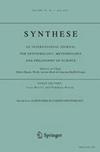党派科学与民主合法性理想
IF 1.3
1区 哲学
Q1 HISTORY & PHILOSOPHY OF SCIENCE
引用次数: 0
摘要
民主合法性理想要求科学价值判断通过民主程序合法化,以反映公共利益或民主目的。这种观点得到了Intemann(2015)和Schroeder(2021)等人的明确支持,并反映了对科学民主化和公众参与程序整合的更广泛的共同承诺。本文认为,当前形式的民主合法性理想没有为党派科学——政治或社会参与的科学——留下空间。这是有问题的,因为党派研究可以对科学和社会做出重大贡献,我将用最近荷兰的一个案例研究来说明这一点。为了解决这个问题,我仔细研究了民主合法性的概念,并考虑了它在科学话语中的价值。目前的讨论集中在使具体价值判断合法化的民主决策程序上。我指出,这种关注并不能充分代表代表政治理论手中的合理的合法化程序。因此,我提出了一种不同的方法:我建议将科学家视为一种特殊的代表,他们被授权做出独立的价值判断,但却受到其选民要求的限制。基于这种方法,我认为科学的价值不需要建立在民主商定的目标或公共利益的基础上。相反,我主张建立一个多元化的科学授权体系,它不同于价值多元化和民主合法性理想。本文章由计算机程序翻译,如有差异,请以英文原文为准。
Partisan science and the democratic legitimacy ideal
Abstract The democratic legitimacy ideal requires value judgments in science to be legitimised by democratic procedures in order for them to reflect the public interest or democratic aims. Such a view has been explicitly defended by Intemann (2015) and Schroeder (2021), amongst others, and reflects a more widely shared commitment to a democratisation of science and integration of public participation procedures. This paper suggests that the democratic legitimacy ideal in its current form does not leave space for partisan science – science that is politically or societally engaged. This is problematic because partisan research can contribute substantially to science and society, a point that I will illustrate with a recent case study from the Netherlands. To resolve this problem, I scrutinise the notion of democratic legitimacy and consider its use in the values in science discourse. Current discussions focus on democratic decision-making procedures to legitimise specific value judgements. I show that this focus does not adequately represent sound procedures of legitimisation at the hand of political theories of representation. Consequently, I develop a different approach: I propose to consider scientists as a special case of representatives who are authorised to make independent value judgements while nevertheless being constrained by the demands of their constituencies. Based on this approach, I argue that values in science do not need to be based on democratically agreed upon aims or the public interest in every instance. Instead, I advocate for a pluralist system of scientific mandates, which differs from both value pluralism and the democratic legitimacy ideal.
求助全文
通过发布文献求助,成功后即可免费获取论文全文。
去求助
来源期刊

Synthese
管理科学-科学史与科学哲学
CiteScore
3.30
自引率
13.30%
发文量
471
审稿时长
1 months
期刊介绍:
Synthese is a philosophy journal focusing on contemporary issues in epistemology, philosophy of science, and related fields. More specifically, we divide our areas of interest into four groups: (1) epistemology, methodology, and philosophy of science, all broadly understood. (2) The foundations of logic and mathematics, where ‘logic’, ‘mathematics’, and ‘foundations’ are all broadly understood. (3) Formal methods in philosophy, including methods connecting philosophy to other academic fields. (4) Issues in ethics and the history and sociology of logic, mathematics, and science that contribute to the contemporary studies Synthese focuses on, as described in (1)-(3) above.
 求助内容:
求助内容: 应助结果提醒方式:
应助结果提醒方式:


